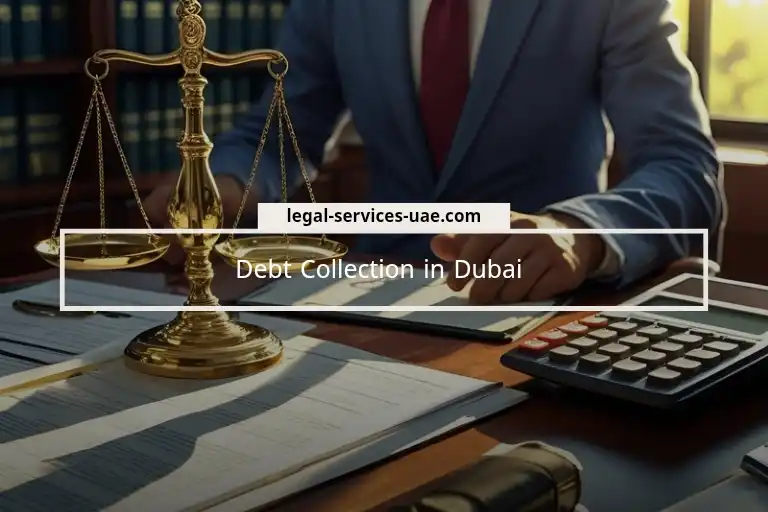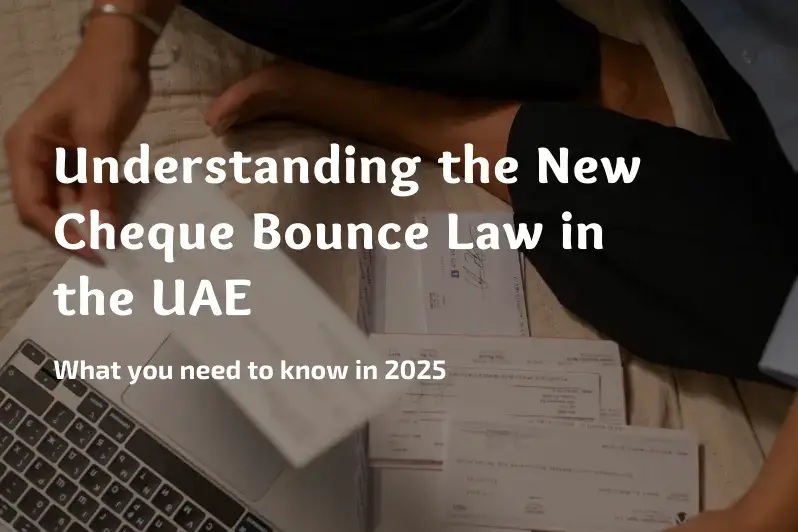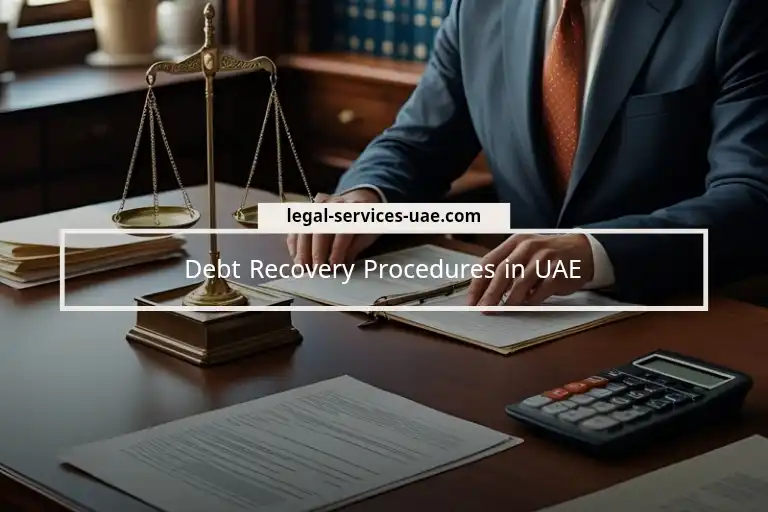Imagine a Dubai-based supplier delivering goods to a retailer who fails to pay AED 200,000 on time. The predicament involves debt collection in Dubai, where navigating legal obligations, court processes, and enforcement tools becomes essential for recovering sums due. Ensuring clarity on debt collection in Dubai is vital for businesses avoiding cash-flow disruptions.
Need urgent support with debt recovery? Click on the WhatsApp button below.
فهرس المقال
Legal Framework of Debt Collection in Dubai
Before taking action, it’s crucial to understand the legal backbone supporting your debt recovery efforts. Here’s a breakdown of the relevant UAE laws.
- Civil Transactions Law (Federal Law No. 5 of 1985) – Governs contract obligations and personal debts.
- Commercial Transactions Law (Federal Decree-Law No. 50 of 2022) – Covers commercial obligations, interest limits, and debt guarantees.
- Federal Decree-Law No. 15 of 2024 – Regulates public sector debt collection processes.
- Federal Decree-Law No. 51 of 2023 (Bankruptcy Law) – Allows creditors to initiate insolvency procedures.
- Factoring Law (Federal Decree-Law No. 16 of 2021) – Supports assignment of receivables under UAE law.
Standard Steps in Debt Collection Dubai
Knowing the correct sequence of actions can mean the difference between recovered funds and prolonged litigation. Here’s what to expect.
- Polite Payment Reminders – Initiate contact with written or verbal reminders.
- Formal Legal Notice – Issue a statutory demand with payment deadlines.
- Court Filing – File the case in Dubai Courts or DIFC, based on the agreement.
- Judgment Phase – Present supporting documents to secure a verdict.
- Execution – Attach assets or funds through court-backed enforcement.
- Bankruptcy Filing – Initiate liquidation proceedings if the debtor is insolvent.
Evidentiary Requirements in Debt Litigation
To succeed in debt collection Dubai, courts require creditors to present solid documentary evidence. Below are the key evidentiary requirements:
- Contracts or Agreements: Must clearly outline payment terms, obligations, and signatures of both parties.
- Invoices & Delivery Notes: Should show amounts due, services/products delivered, and dates of issuance.
- Promissory Notes or Cheques: Post-dated cheques or signed payment instruments help prove debtor acknowledgment.
- Bank Transfer Records: Confirm actual financial transactions and the non-payment of dues.
- Formal Correspondence: Emails, letters, or legal notices showing attempts to collect the debt.
- Notarized or Translated Documents: Required in some cases, especially for foreign contracts or when authenticity is challenged.
- Cross-Border Debt Documents: Must prove both The validity of the underlying transaction, and Dubai courts have jurisdiction over the dispute.
Statutory Time Limits for Debt Claims in Dubai
Another critical aspect of debt collection in Dubai is compliance with the statute of limitations. Under the UAE Commercial Transactions Law, claims arising from commercial obligations generally expire after five years from the date the debt became due, unless the law provides otherwise. For civil obligations, the period may extend to fifteen years, unless interrupted by a formal notice or acknowledgment.
Missing these deadlines may result in the court refusing to hear the case altogether. Therefore, prompt legal action is not just advisable—it’s legally necessary. Legal professionals can assist in assessing the enforceability and validity period of the debt claim to ensure it proceeds without procedural flaws.
Why Use a Dubai-Licensed Law Firm?
Enforcing your rights effectively requires more than legal documents—it needs local expertise and procedural accuracy. Our lawyers in Dubai afford:
- Navigate DIFC or Dubai court systems smoothly.
- Access real-time updates on enforcement actions.
- Gain advantage in bankruptcy and insolvency representation.
- Comply with UAE-specific laws that protect creditors.
Frequently Asked Questions
In conclusion, debt collection in Dubai is governed by clear federal and local regulations that offer creditors robust mechanisms to recover dues. Whether through court litigation, asset seizure, or insolvency proceedings, understanding the process enhances your ability to act confidently and promptly.
Want to take the next step in debt collection Dubai? Contact our team now via the WhatsApp icon below and get professional legal help.
Was this helpful?
Specialized Legal Content Writer, possessing deep legal knowledge and exceptional ability to demystify legislation and analyze judicial developments. He delivers clear, precise content that helps you understand your legal rights and obligations while empowering you to make informed decisions across diverse legal domains. Working within our expert legal team, he ensures credibility and trustworthiness in every piece of content.




